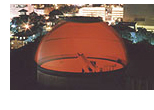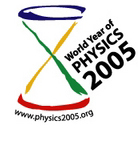|
|
Participation Credits
Participation includes all class activities and assignments other than the exams and quizzes. Some
participation activities provide automatic credit (or nearly so), while others are graded and earn credit based
on your grade. Below I give more detail about the different ways to earn participation credit.
Important: You can earn up to 20 points of participation credit, but no more than 20; any additional
credits over 20 points will not change your course grade, although it is probably to your benefit to
continue to do the homeworks and attend class, since those will help you be prepared for the exams.
Note that quizzes do not count towards participation credit. (In effect, the quizzes are the "essay"
portion of the exams.) Likewise, participation points cannot make up for low quiz or exam grades,
but they do average into your final semester grade (counting as 20%).
- Star Parties.
 Documented attendance at a UT Astronomy-sponsored Star Party (evening viewing
of astronomical objects through a telescope) earns you 2 points per Star Party, for a maximum of two
Star Parties over the semester. To get this credit, you need to get a signed slip from the person in
charge, and turn it in at the beginning of class or to the Instructor or T.A. before the (to be announced)
deadline, which will be near the end of the semester. There are Star Parties on Wednesday evenings
on the roof of Robert Lee Moore Hall using a 16-inch telescope, and on Fridays and Saturdays using the 9-inch telescope
at Painter Hall. Warning: Star Parties are cancelled if the weather is rainy or sufficiently
cloudy that there's nothing interesting to see. You cannot get credit for a Star party if it is cancelled
due to weather. It is risky to postpone attending a Star Party until the end of the semester, since the
weather is often bad in the late spring, so if you are counting on a Star Party credit for your grade you
should try to do this well before the end of the semester. You can check on the start times, find maps,
and a phone number to call if the weather is doubtful, at the Star Party link. Maximum available credit:
4 points.
Documented attendance at a UT Astronomy-sponsored Star Party (evening viewing
of astronomical objects through a telescope) earns you 2 points per Star Party, for a maximum of two
Star Parties over the semester. To get this credit, you need to get a signed slip from the person in
charge, and turn it in at the beginning of class or to the Instructor or T.A. before the (to be announced)
deadline, which will be near the end of the semester. There are Star Parties on Wednesday evenings
on the roof of Robert Lee Moore Hall using a 16-inch telescope, and on Fridays and Saturdays using the 9-inch telescope
at Painter Hall. Warning: Star Parties are cancelled if the weather is rainy or sufficiently
cloudy that there's nothing interesting to see. You cannot get credit for a Star party if it is cancelled
due to weather. It is risky to postpone attending a Star Party until the end of the semester, since the
weather is often bad in the late spring, so if you are counting on a Star Party credit for your grade you
should try to do this well before the end of the semester. You can check on the start times, find maps,
and a phone number to call if the weather is doubtful, at the Star Party link. Maximum available credit:
4 points.
- Index Cards. At the end of some class sessions, the instructor distributes blank index cards and
asks you to summarize the main points of that class, as well as to note which topics and points were
unclear to you. You earn 1 point of participation credit for any good-faith effort. It is not necessary
that you understand everything covered in class that day, only that you are present and engaged. On the
other hand, if you turn in an index card giving the main points from an earlier class meeting, that could
have been copied from the posted Lecture Summary or another student's notes, you will not receive
credit. (This has actually happened four times already.) Please note that the Instructor posts a pdf file
summarizing the main points as summarized by the students as well as answering the most frequently
asked questions. These are posted on the Index Cards page. Maximum available credit: depends on the
number of cards. We will have 7 index cards during the first half of the semester (before Spring Break).
The total for the semester is likely to be 12 - 14 points.
- Homeworks. Your graded homeworks also count towards participation credit. The main assigned
homework questions, which are graded on a scale of 8 points (2 points per question on a typical
homework with 4 questions), will be rescaled so that it gives you up to 2.0 participation credits. On
some homeworks, you can get a little more credit by answering the "bonus" questions. No homeworks
are accepted by e-mail, or after the due date. There are no make-ups for missed homeworks, since
you can earn the equivalent credit in several alternate ways. Maximum available credit: depends on
the number of homeworks assigned. We will have 4 homeworks in the first half of the semester, for
an average of 2.25 points per homework. The total for the semester should be in the range
13.5 - 15.5 points.
- Special Lectures and TV Programs.
 There are occasionally special Public Lectures at UT that are of
interest and relevant to this course. We have had two of these so far this semester, one by Prof. Pawan
Kumar of the Astronomy Department, and one by Prof. Steven Weinberg of the Physics Department.
In addition, there was an episode of the PBS science program "Nova" recounting the story of the search
for neutrinos coming from the Sun. For each of these events, you were invited to attend or watch the
program and turn in a 1-page written summary of what you heard, in your own words. These summaries
are graded by the instructor or one of the T.A.'s, for up to 2 points of participation credit. There is no
limit to the number of special lectures you can attend, but I cannot anticipate how many (if any) more
such events will occur during the semester. Maximum available credit: 6 points.
There are occasionally special Public Lectures at UT that are of
interest and relevant to this course. We have had two of these so far this semester, one by Prof. Pawan
Kumar of the Astronomy Department, and one by Prof. Steven Weinberg of the Physics Department.
In addition, there was an episode of the PBS science program "Nova" recounting the story of the search
for neutrinos coming from the Sun. For each of these events, you were invited to attend or watch the
program and turn in a 1-page written summary of what you heard, in your own words. These summaries
are graded by the instructor or one of the T.A.'s, for up to 2 points of participation credit. There is no
limit to the number of special lectures you can attend, but I cannot anticipate how many (if any) more
such events will occur during the semester. Maximum available credit: 6 points.
As of the middle of the semester, we will have offered opportunities for up to 7 points in index cards
and about 9 points from homeworks (16 points from in-class activities); and up to 8 points outside
of class (for 1 Star Party plus all three special events). So it would have been possible to earn all 20
participation credits already! In the second half of the semester, depending on the number of index
cards, homeworks, and special events (not known at this time), we are likely to have an additional
12 - 15 points available. Therefore, failure to get the full benefit of the 20% participation credits will
be a consequence of your own choices on allocating time and effort to this particular class.
|


